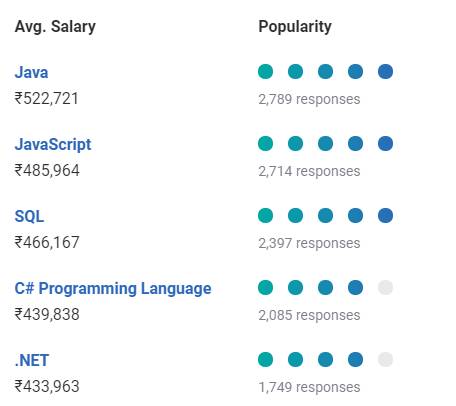
Companies have many issues with the collection and management data. We will look at how companies collect, manage, and use data, as well the implications of government collecting data. We'll also look at the data collection methods used by companies. We'll also be discussing the privacy and security issues associated with government-funded data collection. Here are some examples.
Methods for collecting data
Many data collection methods are available for companies. Surveys, interviews, and forms are just a few of the methods available. Electronic means, such as databases or data management platforms, are also possible. Additionally to collecting data, it is important that you analyze it. First-party data is usually more valuable than third-party data because it comes from a source that the company or organization can trust.

Companies should consider collecting data as a strategy. This can help them make more informed decisions. High-quality, relevant data can help companies make better business decisions regarding their products and services. This data can assist in many areas of business including marketing, sales and customer service.
Data collection: Issues
Big data is becoming more mainstream, and there are growing privacy concerns. Privacy advocates fear big data companies might abuse it. The U.S. Department of Justice investigates Google, Facebook, or other companies that gather data. However, most companies that collect data do so because they believe it will benefit them in the future. A panel of experts, including Scott Shipman, general counsel at Sensity Systems, and MeMe Jacobs Rasmussen, privacy officer at Adobe Systems, discussed the ethical issues surrounding data collection and use.
Data collection can be difficult. There are many departments within companies that can collect data about customers. These different departments can end up collecting the same information or even the wrong information. Moreover, companies may collect too much data, which can lead to security issues and confusion over how it will be used.
Data Management
Managing data collected by the government is a crucial step toward improving the efficiency and effectiveness of government services. The government can use data for many purposes including security and climate monitoring. If government data is properly collected, it can have a positive effect on democracy, citizens' services and innovation. The federal government has specific guidelines for ensuring the proper management of government data.

Government agencies can improve their operations, deliver better services to citizens, foster innovation, and promote civic democracy by collecting and analysing government data. Without proper data management tools, and virtualization strategies to manage data, agencies can get overwhelmed with data. The best data management allows government staff to concentrate on more important tasks.
FAQ
What types of contracts exist for consultants?
When they are hired, most consultants sign standard employment contracts. These agreements define the terms of the agreement, including how long the consultant is expected to work for the client as well as what he/she should be paid.
Contracts may also include details about the specific areas of expertise that the consultant is going to be focusing on as well as how they will be compensated. For example, the agreement may say that the consultant will provide training sessions, workshops, webinars, seminars, etc.
Other times, the consultant simply agrees to complete specific tasks within a specified timeframe.
Many consultants also sign independent contractor agreement in addition and standard employment agreements. These agreements allow the consultant not only to work for himself/herself but also provide payment.
What was the origin of modern consultancy?
The first consultants were accountants that helped companies manage finances. They were able to manage financial information and became "accounting experts". They soon expanded their roles into other areas like human resources management.
The French word for advice, "consultant", was originally used to describe someone who could advise on the management of an organization. Today, business owners still use the term consultant to refer to any type of professional advisor.
Do I require legal advice?
Yes! Consultants often create contracts with clients without getting legal advice. This can lead to issues down the road. For example, what happens to the contract if the client terminates it before the consultant has completed? Or what happens if a consultant fails to meet the deadlines in the contract?
It's best to consult with a lawyer to avoid potential problems.
What is the cost of hiring a consultant?
It is not easy to determine how much it will cost to hire a consultant. These factors are:
-
Project size
-
Time frame
-
Scope of work
-
Fees
-
Deliverables
-
Other considerations such as experience level, location, etc.
Which industries use consultants
There are many different types. Many consultants specialize in a particular type of business. Others may be more focused on multiple types.
Some consultants are limited to working for private corporations, while others can represent large corporations.
Some consultants can also help businesses all around the globe.
Is it possible to run a consultancy business from home?
Absolutely! Indeed, many consultants already do this.
Working remotely is a common way for freelancers to work. They use tools like Skype, Trello (Slack), Trello, Basecamp and Dropbox. So they don't miss company perks, freelancers often make their own office space.
Some freelancers prefer to work in cafes or libraries instead of in a traditional office environment.
Others prefer to work from home as they feel more at home with their families.
Although working from home is a great option, there are some downsides. However, if you love what you do, it is worth considering.
How much should a consultant charge?
It all depends on the service you offer. If you're providing services for free, there is no reason to charge anything. If you sell products or services, however, you must set prices based upon value.
If you're providing low-quality service, you don’t have anything to offer. Why would anyone pay anything for you?
You may be able to ask for a higher price if you offer high-quality services. This is because people know the value that you provide. Customers who buy multiple services from you may qualify for discounts.
Statistics
- WHY choose me: Why your ideal client should choose you (ex: 10 years of experience and 6-week program has helped over 20 clients boost their sales by an average of 33% in 6 months). (consultingsuccess.com)
- On average, your program increases the sales team's performance by 33%. (consultingsuccess.com)
- "From there, I told them my rates were going up 25%, this is the new hourly rate, and every single one of them said 'done, fine.' (nerdwallet.com)
- Over 62% of consultants were dissatisfied with their former jobs before starting their consulting business. (consultingsuccess.com)
- My 10 years of experience and 6-step program have helped over 20 clients boost their sales by an average of 33% in 6 months. (consultingsuccess.com)
External Links
How To
How do I start a consultancy company?
You can make a lot of money by setting up a consulting business. You don’t need to have business experience or invest capital. You can start your own consulting firm by building a website. After you have built a website, social media platforms such Instagram, Pinterest and LinkedIn will be useful to spread the word about your services.
You can use these tools to put together a plan for marketing that includes:
-
Create content (blogs).
-
Building relationships (contacts).
-
Generating leads (lead generation forms)
-
Selling products on e-Commerce websites
Once your marketing strategy is developed, you need to find clients willing and able to pay for your services. Some prefer to connect with people through networking events. Others prefer to use online resources like Craigslist and Kijiji. Your choice is yours.
Once you have found clients, you should discuss terms and payment options. These could be hourly fees, retainer arrangements, flat-fee contracts, or other types of fees. You need to be clear about what you expect of a client before they accept you as a client.
Hourly agreements are the most common contract type for consultancy services. In this case, you agree to provide certain services at a fixed rate each month or week. You might be able, depending on which service you offer, to negotiate a discount. You must fully understand the contract you're signing before you agree to it.
Next, create invoices for your clients and send them. Invoicing can seem simple until you try it. There are many different ways to invoice your clients, depending on your preferences. Some people prefer to email their invoices directly, while others prefer to mail them hard copies. Whatever your preferred method, make sure it works well for you.
After you've finished creating invoices, you'll want to collect payments. PayPal is preferred by most because it is easy-to-use and offers multiple payment options. Other payment processors, like Square Cash or Google Wallet, Square Cash or Apple Pay, Venmo and Venmo are also available.
Once you are ready for payments to begin, you will need to open bank accounts. Separate savings and checking accounts will allow you to track your income and expenses independently. Setting up automatic transfers into your bank account is also helpful when paying bills.
Although it can seem daunting when you first start a business as a consultant, once you get the hang of it, it will become second nature. Check out this blog post for more information about starting a consultancy company.
You can make extra money by starting a consulting company without worrying about staff. Consultants can work remotely so they don't have the hassle of dealing with office politics and long working hours. You have more flexibility than traditional employees because you aren't tied down by work hours.